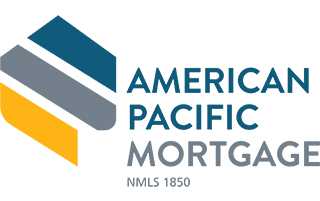How to Qualify For a Home Loan and Move on In!
Making the decision to buy a home is an exciting moment in anybody’s life. However, the process of actually buying a home can be quite challenging. Odds are that like most homebuyer hopefuls, you will need to take out a loan to afford the purchase price of a house. There are a lot of different factors to consider when it comes to taking out a home loan, including not just budgetary considerations but also the factors that influence a lender’s decision to approve certain types of home loans (and to do so with favorable terms). Take your time doing your due diligence before you even begin looking at houses. We’ll give you an overview of the factors that affect home loan eligibility and some of the important considerations you’ll need to make.
See if There is a Down Payment Requirement
Most lenders will require that you make a down payment to take out a home loan. A down payment is a percentage of the home’s price that’s paid up front at closing. A down payment helps to offset some of the risks that the lender is taking by providing such a large loan. Usually, if you’re unable to pay a down payment of 20 percent or more, you’ll be required to purchase mortgage insurance.
One thing to keep in mind is that not all home loans require down payments. There are many different types of mortgages available and some have small or no down payment requirements. Some of the most common types of home loans and the down payment requirements of each are listed here:
- Conventional loan – Down payments are typically between 5 and 20 percent. They vary based on a variety of factors, including the credit score of the borrower.
- FHA (Federal Housing Administration) loan – Borrowers with at least a 580 credit score are required to make a 3.5 percent down payment. Borrowers with less than a 580 credit score must make at least a 10 percent down payment.
- VA (Veterans Affairs) loan – VA loans require no down payment.
- USDA (U.S. Department of Agriculture) loan – USDA loans require no down payment.
Loan to Value (LTV) Ratio
The LTV ratio is used to help assess the risk a lender is taking. It’s the amount of the loan divided by the appraised property value. The higher the LTV ratio is, the more of a risk the loan is to the lender. This is because they don’t want to lend more money than the property is worth. If they do this and the borrower ends up defaulting, the lender may have difficulty collecting what’s owed when they sell the property since it won’t sell for more than its value. Because it can be difficult to even sell a foreclosed home for 100 percent of its appraised value (especially if the value of the house decreases in the years following the initial appraisal), conventional mortgage lenders prefer that the LTV be no more than 80 percent.
Debt Ratio
The lender will want to make sure that you can afford to make payments on your mortgage every month, on time and in full. They will look at your credit report to determine how much debt you are currently carrying. They will also look at two different debt ratios to determine whether you’ll be able to afford to take on more debt with your home mortgage. This includes:
- Front-end ratio – The front-end ratio (also known as a housing ratio) examines whether you can pay the estimated cost of your monthly house payment in addition to the other costs of homeownership, such as mortgage insurance. It’s determined by dividing all of your estimated housing costs in a month by how much you earn per month before taxes. The number is then multiplied by 100 to determine the front-end ratio. Most lenders prefer that borrowers have a front-end ratio of 28 percent or less.
- Back-end ratio – Back-end ratio (also known as debt-to-income ratio) refers to the portion of a borrower’s income that goes towards paying their debts. The monthly debts used to calculate the back-end ratio include all housing-related payments as well as credit card payments, car loan payments, child support, and other loan payment debts. Most lenders (especially when it comes to conventional loans) prefer that the back-end ratio doesn’t exceed 43 percent.
Most lenders use the back-end ratio to determine your main debt ratio as it’s a more accurate way to identify whether you’ll be able to afford to take on a home loan. Lenders are a bit more flexible when it comes to your debt ratio based on the type of loan you’re taking out as well as other factors. For example, if you have an excellent credit score, they may approve your loan even if you have a back-end ratio that’s closer to 50 percent.
Credit History
Your credit history is what lenders will examine to determine not only how capable you are of meeting your financial obligations, but how financially responsible you are. Credit reports provide a detailed credit history that includes the different debts you have and all loans you’ve taken out. Lenders will look at whether you’ve paid off any of your loans and whether you regularly pay what you owe on time and in full. Certain red flags that lenders look for include loans that have gone to collections, bankruptcies, and foreclosures. They will also look at your credit score, which provides what is essentially an overall grade of your past and current financial standing.
Credit Score or the FICO Score
Lenders require that borrowers have a credit score that meets or exceeds their minimum credit score requirements, which vary. While some government-backed loans do not have minimum credit score requirements, private lenders who issue these loans will typically still have a minimum you will have to meet. Credit scores range from 300 to 850. The following will give you an idea of where you stand with your credit score according to FICO:
- Exceptional credit score – 800 to 850
- Very good credit score – 740 to 799
- Good credit score – 670 to 739
- Fair credit score – 580 to 669
- Very poor credit score – 300 to 579
Not only does your credit score factor into whether your loan will be approved, but it also affects the terms of your loan. The better your credit score is, the lower your interest rate will be for conventional home mortgages. Lenders may also be more flexible when it comes to other requirements if you have a particularly high credit score. Ideally, you’ll want a credit score that’s 680 or higher. As for the minimum credit score requirements, the following are the minimums for the different loan programs:
- Conventional loans – 640
- FHA loans – 500 to 580
- VA loans – 580 to 620
- USDA loans -620
Check that You Have Enough Income to Satisfy the Mortgage
It won’t matter what your credit score is or if you don’t need to make a down payment if you don’t have the money to pay for your mortgage payments. You will need to prove that you are making consistent income (which will be taken into consideration when determining your debt-to-income ratio as well). Most lenders will require that you have been employed by the same place for at least two years as well (this establishes consistency). Lenders will look at both qualifying income and non-qualifying income.
Qualifying Income
The types of income that can be used to qualify for a home mortgage include:
- W-2 income or salary
- Income from second jobs, part-time jobs, and/or seasonal jobs
- Self-employed income
- Overtime earnings and bonuses
- Alimony and child support
Non – Qualifying Income
VA loans stipulate that there are certain types of income that cannot be used to qualify. These types include the following:
- Lottery winnings
- Gambling winnings
- Unemployment payments
- Single bonuses
- Rental property income
- Non-occupying co-signer income
- Unverifiable income
Required Mortgage Documents
Lenders will require a number of documents to process your loan. Knowing what these documents are ahead of time will allow you to collect them before you meet your loan officer, saving you both time. The following are the documents you’ll need to have:
- W2 forms from the past two years
- Three months worth of pay-stubs
- Three months worth of bank statements
- The previous two year’s worth of tax returns
- A list of all of your debts
- A list of all of your assets
- Your divorce decree if you are divorced
- Any additional income documentation you have
Make Sure That You Can Actually Afford It
Qualifying for a home loan and affording one are two different things. You don’t want to be living paycheck to paycheck due to the debt of your home loan since just a single unexpected financial emergency could cause you to spiral into debt. You should also consider other costs of living that your lender won’t take into account when determining your debt-to-income ratio. We’ve listed a few basic tips for you to help you decide if you can afford to take on a mortgage:
- Speak to several lenders – A reputable lender will usually be upfront about whether or not they think you can afford a loan since the last thing they want is to have to foreclose on a property. However, it’s a good idea to get the opinion of several lenders when it comes to your back-end ratio to get a better idea of whether you can afford a loan or not. If one lender thinks they would approve you based on your back-end ratio but another would not, it means that you’re right on the line.
- Consider your cost of living – Some of the expenses your lender won’t consider when determining your back-end ratio includes things like the amount you’re spending on gas for your car, the amount you spend on groceries, the amount you spend on basic living supplies (such as toiletries and clothing), and more.
- Consider future expenses – Home loans are typically a 15 to 30-year commitment, which means you should consider not just your current financial situation, but your potential future one as well. For example, are you planning on having children? Having a child adds a significant financial burden to a family and if this is in your family’s plans, you’ll want to take that into account.
Conclusion
There’s a lot to think about when it comes to becoming a homeowner, especially whether you’ll be able to qualify for a loan and whether or not you can afford to pay off a home loan. Because of this, it’s extremely important that you do your research and that you plan your budget carefully.
The views, articles, postings, and other information listed on this website are personal and do not necessarily represent the opinion or the position of American Pacific Mortgage Corporation or US Lending Company.
* For loan examples and more information visit our disclosure page at https://www.uslendingcompany.com/disclosures/





